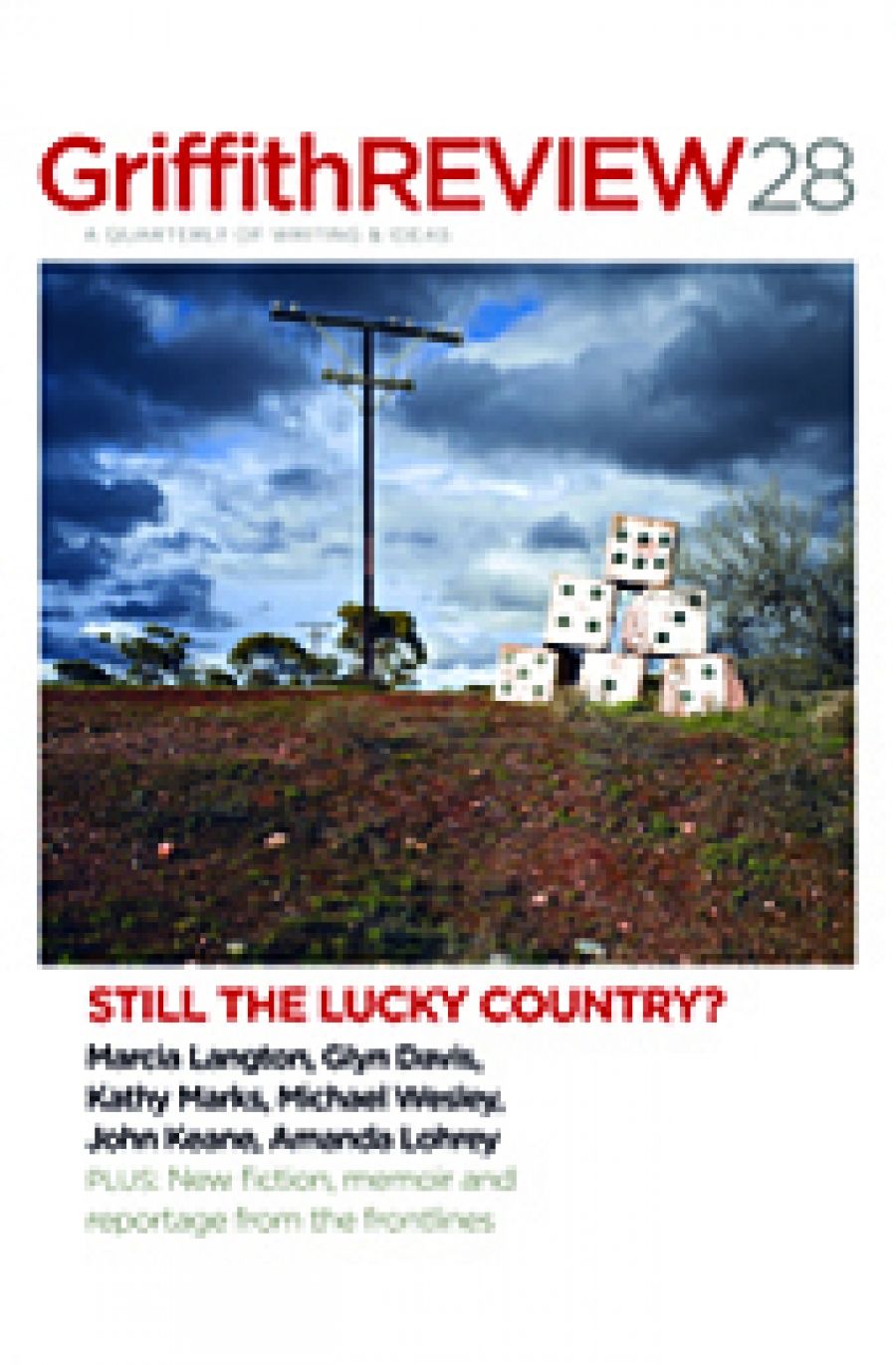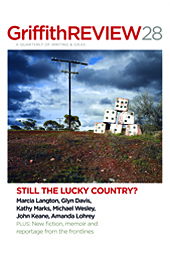
- Free Article: No
- Contents Category: Journal
- Review Article: Yes
- Online Only: No
- Custom Highlight Text:
In his influential book The Lucky Country (1964), Donald Horne argued: ‘The time has come when broad views of change that now seem impractical will seem sensible and to the point.’ This argument is taken up by the contributors to Griffith Review 28. These contributors explore the ways that Australia has reinvented itself in recent years, both economically and culturally.
- Book 1 Title: Griffith Review 28
- Book 1 Subtitle: Still the Lucky Country?
- Book 1 Biblio: Text Publishing $24.95 pb, 260 pp, 9781921656163
- Book 1 Cover Small (400 x 600):

- Book 1 Cover (800 x 1200):

The journal opens with Kathy Marks’s analysis of how mining has transformed the economy and social make-up of Kalgoorlie. Marcia Langton argues that this Western Australian ‘mining boom’ has benefited certain communities and not others. Nick Marland describes his experience as a job-seeker during the economic downturn of 2009. Dennis Altman contends that the parlous state of the global economy over the past eighteen months ‘has made the radicalism of the [1960s] worth reexamining’. Yet he also warns readers to ‘abandon nostalgia for a mythologised radical past’.
A clear highlight is Glyn Davis’s overview of Horne’s life and career. Davis was supervised by The Lucky Country’s author during his Honours year at the University of New South Wales, in 1981. Davis paints a vivid portrait of a man who started out as a ‘conservative radical’ and who eventually moved beyond any clearly defined political standpoint. Another standout was Melissa Lucashenko’s account of the events surrounding the recent schoolyard death of a teenage boy in northern New South Wales. Lucashenko provides a sensitive and nuanced treatise on grief, violence and masculinity.
Editor Julianne Schultz acknowledges in her introduction that Australia was fortunate enough to ‘navigate the recent global financial crisis’ with more success than many other countries. The contributions to Griffith Review 28 remind us that we must look to ‘fresh thinking and courageous policy innovation’ to maintain a vibrant economy and national culture.


Comments powered by CComment